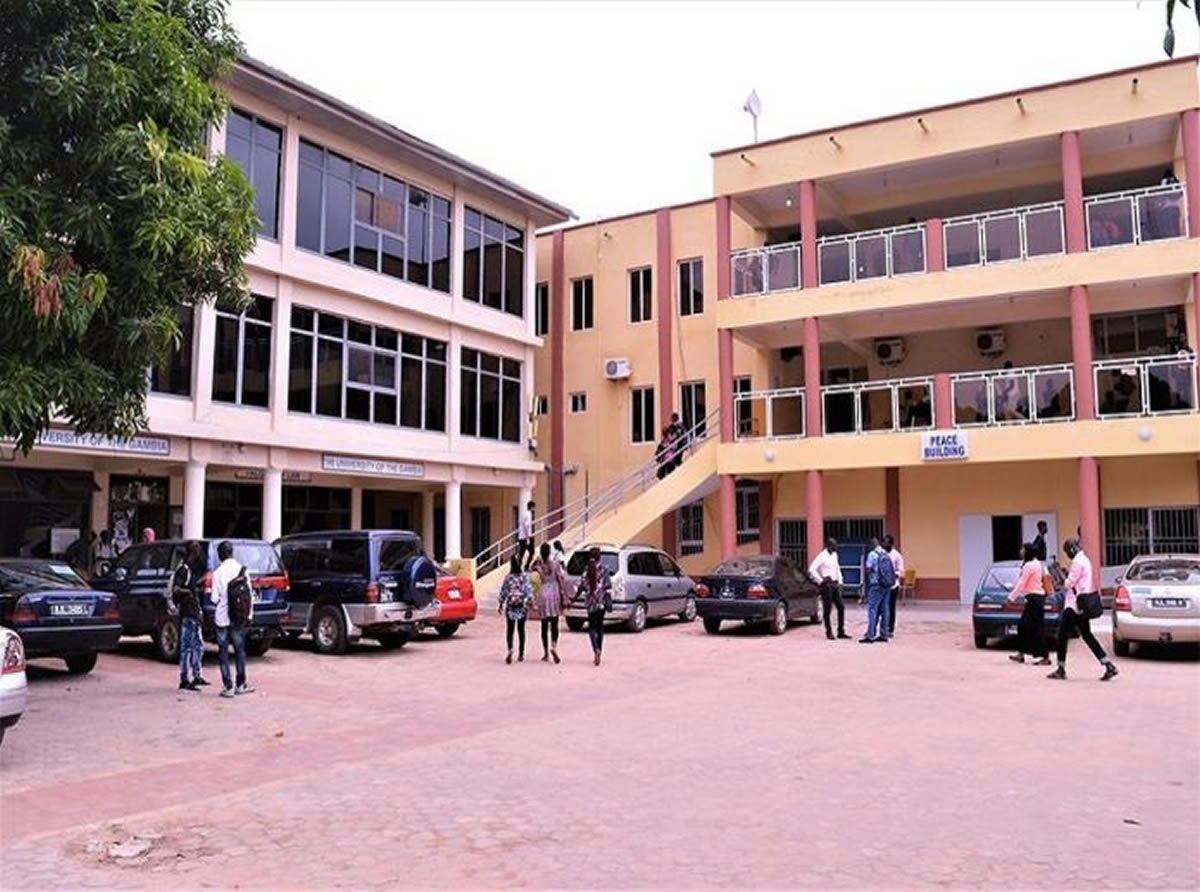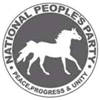The NPP holds the view that the quality of a people and their rate of development and advancement are dialectically linked to the level and quality of their education, which is reflected in their education system and how it is managed. In this respect, we reject the exclusive commercialisation of education, and maintain that public educational institutions should provide free educational services.
We submit that education must not be perceived as a commodity to be provided solely for employment purposes or financial gain. On the contrary, education is as crucial for all the good that it accrues as it is for its inherent value. Therefore, all Gambian citizens should be educated for empowerment: empowerment for every conceivable purpose; but, most especially, for self-liberation or emancipation from all forms of mental, psychological or intellectual domination or oppression.
In essence, this is the liberation of the mind. Such purposeful education should prepare every citizen for true civic responsibility and purposeful citizenship.In its definition and provision of quality education, an NPP Government will strive to reorient the Gambian education system in order to make it more equitable and better balanced to yield desirable outcomes. Thus, education will be used as a tool for the development of the nation and advancement of all within the nation. The Sciences, emerging knowledge on Technology, Innovation, Research, and productivity will be accorded special priority to keep pace with global trends and development. Our institutions of higher learning and training for skills acquisition and development shall be skewed towards graduating critical, independent and strategic citizens for investigation, creativity and productivity. The NPP will, therefore, settle for no less than top-notch institutions, supported at the base by well-equipped and performing schools that put emphasis on STEM (Science, Technology, Engineering and Mathematics) education at an early age.
Premise
The premise for the NPP’s perspective on development and education is that development revolves around people and evolves from them. In view of this, we argue that:
- To develop a people for self-advancement, educate them;
- To guarantee a secure society for all, educate the youth;
- To build and sustain an enlightened society for informed choices and decisions, educate everyone;
- To develop a nation, invest in education, knowledge production and innovation;
- To waste a nation’s resources, ignore the people’s intellectual development.
Based on this premise and our notion of education, in the short term, in the quest of providing quality education to all Gambians, the NPP Government will continue to consolidate the gains registered in the Education Sector from 2017 to date. More schools will be built and provided with the relevant teaching and learning materials. The capacity of school teachers and lecturers will be developed, and the curricula will be periodically reviewed and aligned, as and when deemed necessary, to meet the development needs of the country.
BASIC AND SECONDARY EDUCATION
A successful and progressive society can only be realized with a well-placed human resource capital through proper education and training. An NPP Government will invest substantially in education to help achieve economic growth and development. We will revamp the twelve-year basic education system, the technical vocational education and training sub-sector, as well as instituting up-to-date facilities in higher learning educational settings.
Despite the provision of free education within public schools at the basic cycle level, the attainment of over 90% Gross Enrolment Rate at the Lower Basic Education level and Government’s priority allocation of the recurrent expenditure to education, there is still an acute shortage of artisans, technicians, scientists and other professionals required for economic growth and diversification. The quality of education is not up to standard, especially in the rural area, due to shortage of Qualified Teachers. Often, teachers operate under unfavourable social and professional conditions. In consequence, teacher morale is generally low, thereby impacting negatively on student performance.
Major Challenges
It is regrettable that our education programmes are undermined by a range of undeniable challenges; among them are:
- A mismatch between the graduates produced and the professionals needed by the economy;
- Inadequate collaboration between universities and the private sector;
- Inadequate technical education institutions;
- Acute shortage of key skilled persons and specialists, such as artisans, engineers, managers and accountants;
- Underdevelopment of entrepreneurial skills among the youth;
- Inadequate supply of teachers, especially in the sciences;
- Il-equipped and insufficient sporting and other facilities in schools;
- Absence of, or insufficient supply of, computers and other modern learning technologies;
- Low teacher morale;
- Lack of collaboration among schools;
Weak management of schools; - Non-existence of centres of excellence of international recognition;
- Inadequate provision of Early Childhood Care and Development services, especially upcountry;
- Large disparities in the quality of education between public and private schools and between urban and rural schools;
- Low participation rates at the higher and tertiary education level; and,
- Limited Lifelong learning opportunities.
- Inadequate support for disadvantaged groups, such as those with learning or physical challenges.
Proposed Interventions
To mitigate the challenges enumerated above, the NPP shall pursue the proposals that follow.
- Create suitable learning environments and learning systems that empower the citizenry with skills and information for exploitation and creation of opportunities to build a growing, resilient, modern and diversified economy;
- Improve the management of education and training systems in all fields and institutions of learning with the objective of enhancing the skills, morale, working conditions and dignity of the teachers and other relevant professionals at all levels of the education system;
- Create opportunities to empower all citizens, especially under-served persons, with Lifelong learning skills and knowledge to lift them out of poverty.
Mechanisms to improve learning
Noting the performance levels in the schools, our plans to improve the education system focus on making the system more practical and technical, as well as improving on the management of learning systems. As a Government, the NPP will:
- Introduce modern school management systems and practices, including templates for budgeting, staff management, maintenance, project management and performance monitoring;
- Introduce and entrench information technology systems and software for the management of schools and school affairs;
- Allow students the choice of a technical stream, science stream, music or arts stream, sports and recreation stream and a general stream. These should begin as early as the secondary school level so that students acquire, at least, some operational knowledge in one area of specialisation by the end of the secondary school level;
- Vastly expand the national stock of teachers at all levels, especially science and technical subject teachers;
- Improve teacher remuneration by establishing incentives linked to performance and outcomes; and,
- Build modern learning infrastructure (computer laboratories, sports facilities and ICT infrastructure).
TERTIARY AND HIGHER EDUCATION
At the Tertiary and Higher Education Level, we will:
- Significantly increase the stock of doctors, scientists, managers, entrepreneurs, health-practitioners, engineers, artisans, accountants and ICT experts through a coordinated system of streaming students;
- Substantially enhance the tertiary level intake to double the current admission levels within five years by augmenting the scholarship regime or packages for local technical, management and ICT colleges;
- Position The Gambia as a continental centre of excellence in education and educational services to attract international students to the country for purposes of learning;
- Establish The Gambia as a centre of excellence for research, with our local universities, private sector and Government collaborating in highly coordinated initiatives, including a Comprehensive Research and Development Programme;
- Broaden access to tertiary education to rural and under-served youth;
- Encourage workers in the private and public sectors to enhance their skills through new initiatives for Lifelong learning;
Ensure every student graduate from our system is self-confident and skilled in, at least, one functional area within the nation’s selected priority sectors; - Offer interest-free loans to all students who adhere to repayment terms and conditions;
- Offer support or concessions annually to students pursuing targeted courses at The University of The Gambia, as determined by the Ministry of Higher Education, Research, Science and Technology, with the possibility of awarding full or partial scholarship packages, grants or interest-free loans;
- Ensure a credible and viable National Research Council to broker partnerships between and among Universities and Industry, Government and community organisations in essential research work. The National Council should be resourced to support programmes aimed at developing and encouraging indigenous food, mineral processes, solar technology, local medicines and establishing indigenous niches that can catapult The Gambia’s export of foods, medicines and other products or services. This body should be tasked also to support the work of The University of The Gambia, The Gambia Technical Training Institute (The Gambia University of Science, Engineering and Technology – proposed), the National Public Health Laboratories, National Agricultural Research Council and other centres of excellence in the public and private sectors.
The NPP is strongly determined to bring out the best in every child through education, and the strategies to explore are:
- Increasing scholarships, bursaries and grants from pre-school to tertiary and higher education levels;
- Making pre-school education better, more accessible and affordable;
- Providing more options for children with diverse interests and abilities;
- Working gradually towards providing tuition-free education;
- Upgrading and/or transform old schools, aside from building new ones; and,
- Providing more support for children with learning difficulties and special needs.
We call for a holistic and equitable approach to education for the purpose of developing well-rounded citizens who are not limited in aspirations and opportunities by socio-economic status. The holistic and equitable approach to education requires us to promote excellence through diversity and mind the school quality gap.



